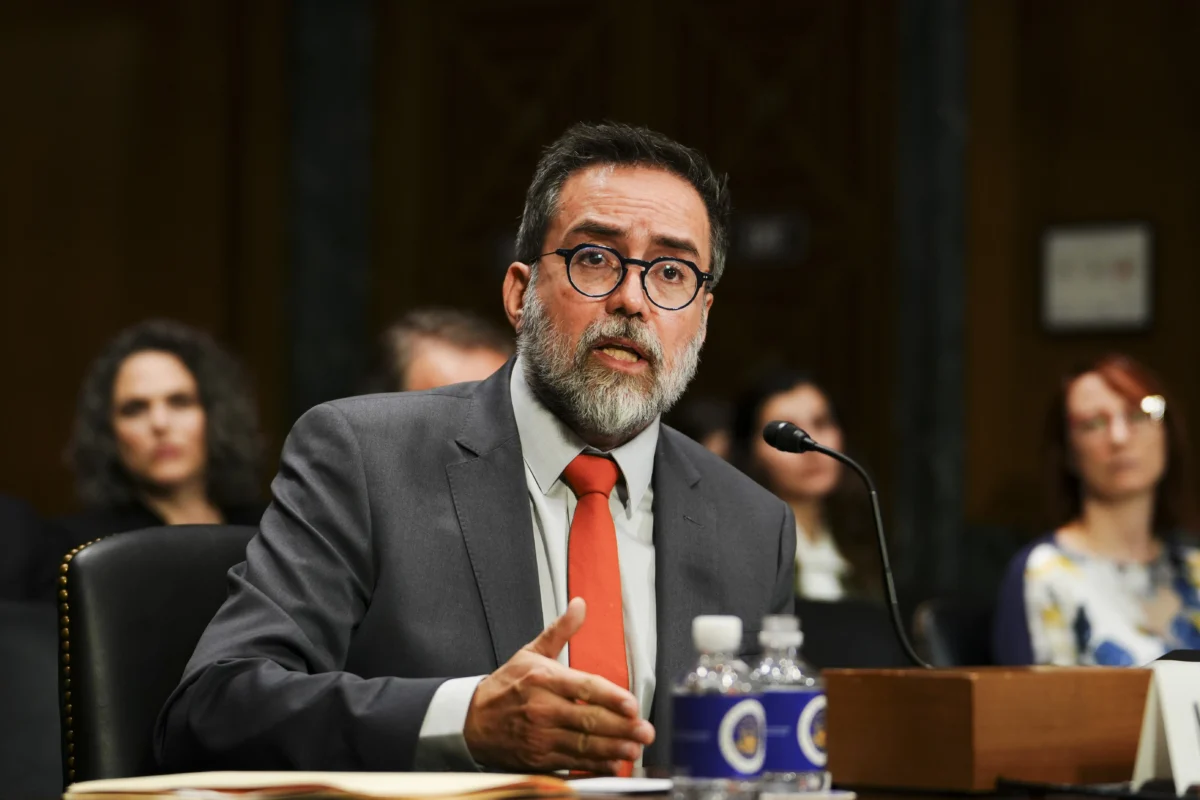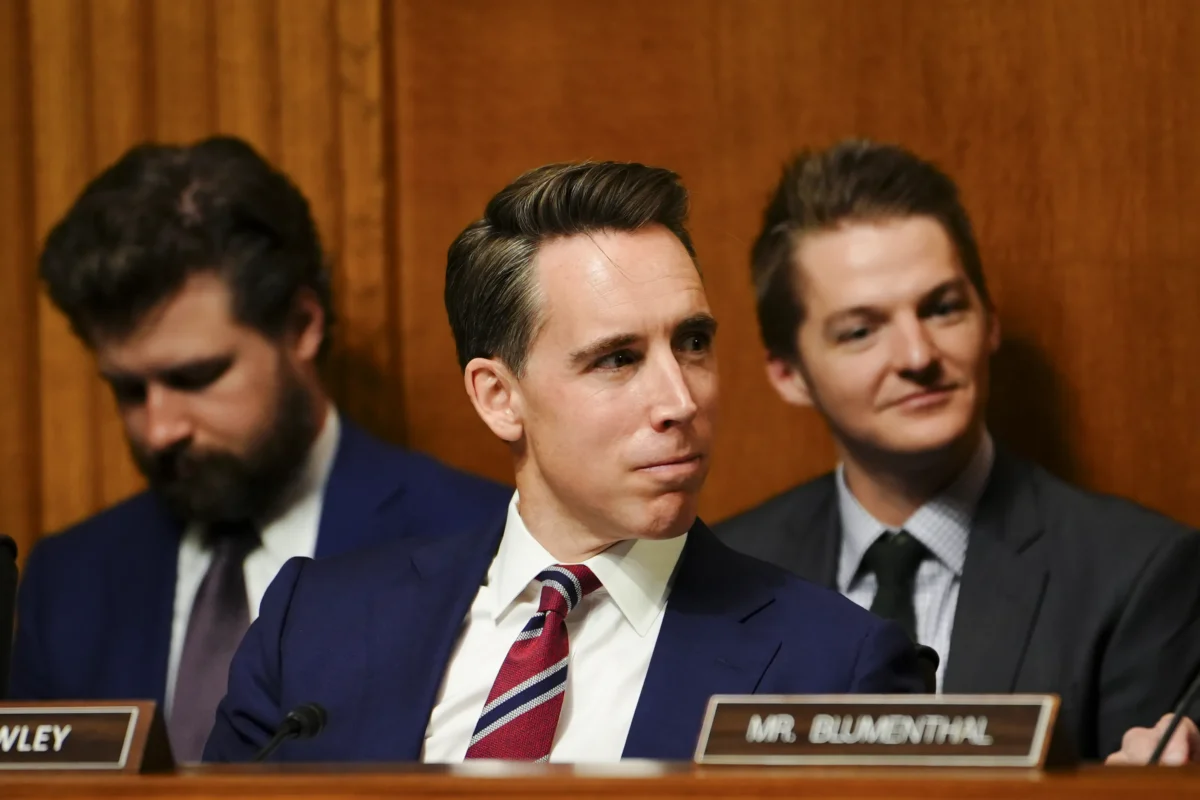Sen. Lindsey Graham (R-S.C.) announced he will refund all money sent to his campaign by Facebook, Instagram, and other tech companies following the Senate testimony of a former Facebook engineer. The senator is calling on his colleagues to do the same, asserting that the companies shouldn’t be allowed to exert influence on lawmakers
Graham’s comments came during a Nov. 7 Senate Subcommittee on Privacy, Technology, and the Law hearing, where they delved into the growing concerns surrounding social media’s impact on the mental health of teenagers.
Arturo Bejar, the former Director of Engineering for Protect and Care at Facebook, was the star witness at the hearing and spoke not only about his professional interactions with the social media platforms but also the way harmful elements of the companies have touched his own family.

“I’ve just asked my office to find out how much money I’ve received from Facebook, Instagram, and other companies. I’m gonna give it back,” Mr. Graham told the committee.
“I’m calling on every member of Congress today. Don’t take their money until they change. Don’t accept what they’re offering you until they change because the money you’re receiving is coming from people who have created a dangerous product for children. And they seem not to be willing to change. They’d be on the bottom of my list … of people I want to associate myself with.”
During the hearing, senators, including Mr. Graham, expressed their concerns and scrutinized the role of social media giants, such as Facebook and its parent company, Meta.
Notice Sent to Facebook Executives
In October 2021, Mr. Bejar sent a memo to then-Facebook’s top executives, CEO Mark Zuckerberg and COO Sheryl Sandberg, which contained distressing statistics. Mr. Bejar’s memo revealed that one in eight children had received “unwanted sexual advances” within the last seven days, while a shocking one in three teenagers had experienced similar advances outside of that seven-day window.
Despite previous communication with company executives on similar issues, Mr. Zuckerberg and Ms. Sandberg did not engage with Mr. Bejar on this pressing issue. The contrast was stark, as Mr. Bejar had, on previous matters, typically received responses from the company within 24 hours.
Mr. Bejar further highlighted Facebook’s approach to handling sensitive content, saying Facebook and Instagram are narrowly defining “harm,” particularly where it concerns sexual content targeting children, creating the appearance that it appropriately deals with a large percentage of the potentially harmful content. In reality, according to Mr. Bejar, the company disallows large portions of what is flagged or reported, categorizing it as not rising to the level of “harm” that needs intervention.
“I observed new features being developed in response to public outcry … a safety feature in name only to placate the press and regulators … rather than being based on user experience data that were based on very deliberately narrow definitions of harm,” Mr. Bejar said.
Additionally, Mr. Bejar testified that Meta executives know that 20 percent of children using their platforms see posts that make them feel bad about themselves every week.
During his testimony, Sen. Josh Hawley (R-Mo.) asserted that the witness testimony created an understanding of social media platforms “grading their own homework” and “cooking the books” by asserting that they are addressing 90 percent of the material in sensitive categories, such as unwanted sexual material, child sex abuse, material pornography, and terrorism, all the while redefining what falls into those categories.
“So when Facebook is out there promoting to the world, ‘Oh, we’re taking down the vast majority,’ it’s simply not true. And in fact, they know it’s not true,” Mr. Hawley reiterated during his comments.
The lawmaker went so far as to say that “the statistic is designed to mislead.” The companies “are deliberately misleading parents about the safety of their children online.”

Big Tech’s Influence
Mr. Hawley, a vocal critic of big tech, expressed his hope that the media would shine a spotlight on the influence of major tech companies in Washington. He characterized them as the most powerful and effective lobbying force in the nation’s capital.
“Big tech is the biggest, most powerful lobby in the United States Congress,” Mr. Hawley said. “They spend millions upon millions upon millions of dollars every year to lobby this body … They successfully shut down every meaningful piece of legislation every year.”
Several of the senators noted that the six pieces of legislation passed through committee regarding safeguards for social media and tech companies could not be called to a vote without Senate Majority Leader Chuck Schumer’s (D-N.Y.) approval, something that Republicans cited as a problem in the effort to pass meaningful legislation.
In addition to speaking to his actions in a professional capacity, Mr. Bejar noted this was an issue personal to him, as his 14-year-old daughter had “awful experiences including repeated unwanted sexual advances” on Instagram, something that prompted him to reach out to Meta again, as a consultant, about the problem, only to have his concerns ignored.
The former Meta employee said the company “wanted to focus on enforcing its own narrowly defined policies, regardless of whether that approach reduced the harm that teens were experiencing.”
The whistleblower said during his testimony that as a dad of a teenager who was affected, he felt helpless, “and if one dad could have helped, it would have been me.”
Referencing Meta, Mr. Bejar said, “They knew. They chose not to do anything about it, and we cannot trust them with our children.”
A Meta company spokesperson told The Epoch Times in an emailed statement about the testimony, “Every day countless people inside and outside of Meta are working on how to help keep young people safe online. The issues raised here regarding user perception surveys highlight one part of this effort, and surveys like these have led us to create features like anonymous notifications of potentially hurtful content and comment warnings.
“Working with parents and experts, we have also introduced over 30 tools to support teens and their families in having safe, positive experiences online. All of this work continues.”
From The Epoch Times
